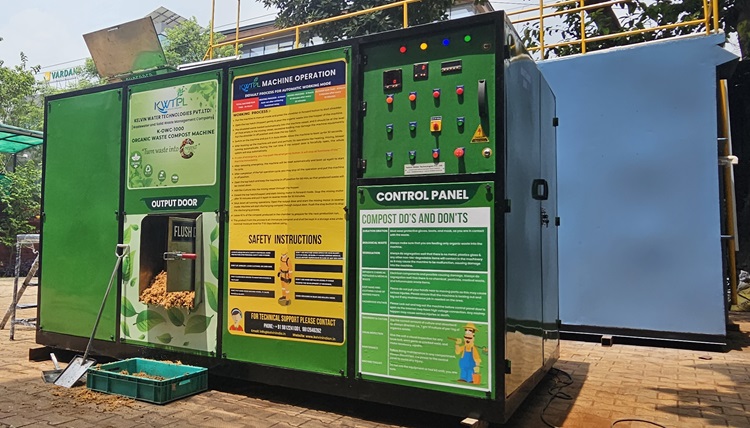Food Waste Management Solutions for Hotels & Restaurants

Food waste has become one of the most pressing challenges for the hospitality industry worldwide. Hotels and restaurants produce massive amounts of food waste daily, from kitchen leftovers, plate waste, and buffet excess to spoiled ingredients. According to global estimates, nearly one-third of all food produced ends up being wasted, with a significant portion generated by the foodservice sector.
For hotels and restaurants, this problem not only affects the environment but also leads to higher operational costs, regulatory concerns, and loss of brand reputation. Therefore, implementing effective food waste management solutions is no longer an option—it is a necessity. In 2025, businesses are increasingly adopting sustainable, cost-effective, and technology-driven strategies to tackle food waste while meeting customer expectations for eco-friendly operations.
Understanding the Sources of Food Waste
Before applying solutions, hotels and restaurants need to identify where food waste is coming from:
- Kitchen Waste: Peelings, trimmings, and spoiled ingredients.
- Buffet Waste: Excess cooked food that cannot be reused.
- Plate Waste: Leftovers from customers’ meals.
- Inventory Loss: Over-purchased or expired raw materials.
Benefits of Food Waste Management for Hotels & Restaurants
Effective waste management provides multiple advantages:
- Cost Savings: Reducing food waste lowers procurement and disposal costs.
- Regulatory Compliance: Meets local municipal and environmental guidelines.
- Sustainability Goals: Aligns with global initiatives such as UN’s Sustainable Development Goals (SDG 12: Responsible Consumption & Production).
- Brand Value: Eco-conscious operations improve customer perception and loyalty.
- Resource Optimization: Better use of raw materials, water, and energy.
Food Waste Reduction Strategies
Hotels and restaurants can reduce food waste through proactive planning and operational changes.
a) Smart Inventory Management
Using digital tools to track stock levels prevents over-purchasing and ensures ingredients are used before expiry. AI-driven inventory software can predict demand based on seasonal trends and customer behaviour.
b) Portion Control
Training staff to serve optimal portions reduces plate waste. Offering flexible portion sizes allows customers to choose based on appetite.
c) Menu Engineering
Designing menus with versatile ingredients minimizes leftovers. Chefs can repurpose surplus ingredients creatively into soups, sauces, or side dishes.
d) Staff Training
Kitchen and service staff must be trained to handle ingredients efficiently, minimize preparation waste, and educate customers about waste reduction.
On-Site Food Waste Treatment Solutions
Hotels and restaurants can install on-site systems to manage food waste effectively.
a) Organic Waste Composters
Fully automatic composting machine convert food waste into nutrient-rich compost within 24–48 hours. Compost can be used for landscaping, gardening, or shared with local farms.
b) Biogas Plants
Food waste can be processed in anaerobic digesters to produce biogas, which can be used as cooking fuel or for heating water. This reduces reliance on LPG or natural gas.
c) Dehydrators
Food waste dehydrators reduce waste volume by up to 80–90% and produce dry material that can be used as animal feed or soil enhancer.
d) In-vessel Composting Systems
These compact systems are suitable for hotels with space constraints. They are odourless, hygienic, and highly efficient for continuous food waste treatment.
Recycling and Reuse Approaches
Instead of disposal, hotels and restaurants can adopt recycling practices:
- Food Donation Programs: Partner with NGOs and food banks to donate surplus edible food to the underprivileged.
- Animal Feed Conversion: Certain food waste streams can be converted into livestock feed after proper treatment.
- Cooking Oil Recycling: Used cooking oil can be recycled into biodiesel.
- Cooking Oil Recycling: Used cooking oil can be recycled into biodiesel.
- Waste Segregation: Separating biodegradable waste from plastics and glass ensures efficient recycling.
Technology-Driven Food Waste Solutions
The future of food waste management lies in technology and automation.
- AI-Powered Food Waste Trackers: Smart bins and IoT devices record what food is being wasted, helping kitchens adjust purchasing and portioning.
- Blockchain in Food Supply Chain: Provides traceability of food items, ensuring better quality control and reduced spoilage.
- Mobile Apps for Donations: Apps connect hotels with local charities for easy surplus food redistribution.
- Smart Packaging: Biodegradable and freshness-indicating packaging reduces spoilage and promotes sustainability.
Government Policies and Regulations
Many cities and states in India and abroad are implementing strict rules on food waste disposal. Hotels and restaurants must comply with:
- Mandatory Waste Segregation: Wet and dry waste must be separated.
- Zero Waste to Landfill Targets: Encourages recycling and composting.
- Penalties for Non-Compliance: Fines are imposed on establishments not following proper waste disposal methods.
Role of Customers in Food Waste Management
Customer awareness is a key element. Hotels and restaurants can engage guests by:
- Providing smaller portion options.
- Encouraging “takeaway” of unfinished food.
- Displaying information on sustainability initiatives.
- Offering discounts or rewards for zero-waste dining.
Case Study: Successful Food Waste Management in Hotels
Several luxury hotels in India have already implemented food waste treatment systems. For example, a 5-star hotel in Delhi installed an automatic composting machine to process 500 kg of food waste daily. The compost produced is used in hotel gardens, significantly reducing disposal costs and landfill burden.
Similarly, restaurant chains are adopting AI-powered waste monitoring systems to track which menu items cause the most waste and adjust offerings accordingly.
Conclusion
Food waste management in hotels and restaurants is no longer just an environmental responsibility—it is a business necessity. With rising operational costs, stricter regulations, and growing customer demand for sustainability, the hospitality industry must adopt efficient waste management practices.
From smart inventory management to advanced composting machines, biogas plants, and AI-driven solutions, there are multiple ways to minimize waste while saving money and enhancing brand image. By taking action today, hotels and restaurants can contribute to a greener future while ensuring profitability and compliance in 2025 and beyond.